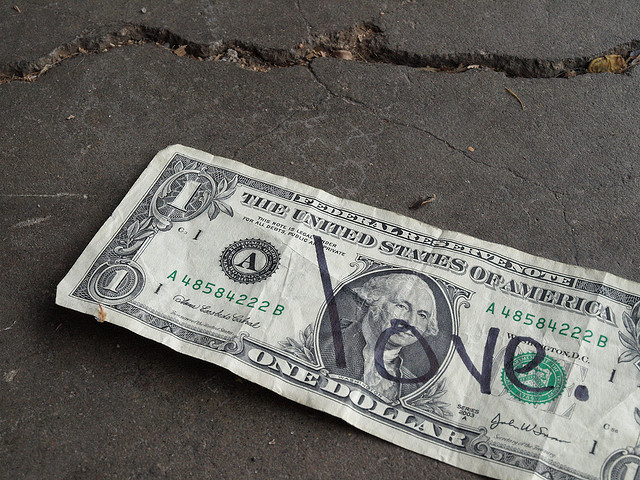- Press Releases
The Zoosk pulse: Love in the time of microeconomics

It’s common wisdom that we guard our money in times of economic stress – but does stinginess of the pocketbook affect generosity of the heart? We recently surveyed nearly two thousand singles on Zoosk to figure out whether the world’s continuing economic turmoil has affected their expectations of love. We conducted the survey this month, and compared it to a similar survey we conducted in May 2009 to see whether singles’ attitudes on dating and money had changed.
We were totally surprised when the changes in perceptions of love were consistent with the changes in the economy, almost as if they were determined by the same underlying economic principles. I guess, when you think about it, this makes perfect sense. It doesn’t take an economist to understand that economic factors outside of our control do profoundly influence our personal decisions, even in matters of the heart. We call these findings, “Love in the time of microeconomics”. Here’s what we found.
An unemployed dating pool and the law of comparative advantage.
With more unemployed men in the dating pool, women are adjusting their expectations. A jobless man still provides a comparative advantage to being alone.
• 60% of women said they’d date someone unemployed in 2010. Only 52% of women did in 2009.
• 90% of men said they’d date someone unemployed in 2010, compared to 92% of men in 2009.
Chivalry and the law of competitive advantage.
Men are historically viewed as providers, and men who pick up the check have a competitive advantage over men who don’t.
• 85.9% of men – a staggering number – usually pick up the bill on a date, and 52% of men spend more money on the average date in 2010 than they spent in 2009.
• 57% of women spend less on dates in 2010 than they did in 2009 – perhaps benefiting from the increase in male chivalry.
Dating budgets and the law of diminishing returns.
The cost of a date is only worth its money up to a certain point.
• 53% of men and 67% of women report that an average date for two costs $20 to $50.
• 35% of men and 21% of women report that it costs $50 to $100.
• 10% of men and 15% of women report it costs $20 or less.
Free dates and the law of economizing.
The slow pace of economic recovery has us saving for a rainy day, so singles are more open to free dates than ever before – 92% in 2010, compared to 85% in 2009.
Dating dishonesty and the adverse effects of anti-competitive practices.
83% of men and 93% of women agree that if someone is unemployed, they should reveal it right away. Honesty is the best policy.
Money can’t buy you love.
It’s comforting to know that with all this talk of money in polite company, the really important things do count the most. 70% of singles say they do not consider money to be an important factor when choosing a mate. Practical considerations do matter, but love triumphs above all.
Zoosk’s poll was conducted online in August 2010 and fielded 1,858 responses from singles in the United States. Of respondents, 66% were male and 34% were female; 54% were in their 20s; 21% in their 30s; 18% in their 40s; 9% percent were 50+.
Photo via Sean Hering Photography on Flickr. Attribution license.
Media Resources
The Zoosk logo is available for use in any media outlet or publication. However, any modification of the logo or combination with other marks is not permitted. If you have questions about Zoosk’s logo and usage requirements, contact press@zoosk.com.

